Do spiders go into our mouths at all?
Spiders, regardless of what we think of them, won't come to us to get eaten. First of all, to eat a spider, you must put it into your mouth or have one walk in voluntarily. Now, considering how unlikely it is that you would decide to grab a spider and put it in your mouth on your own, we have to look at the other option.
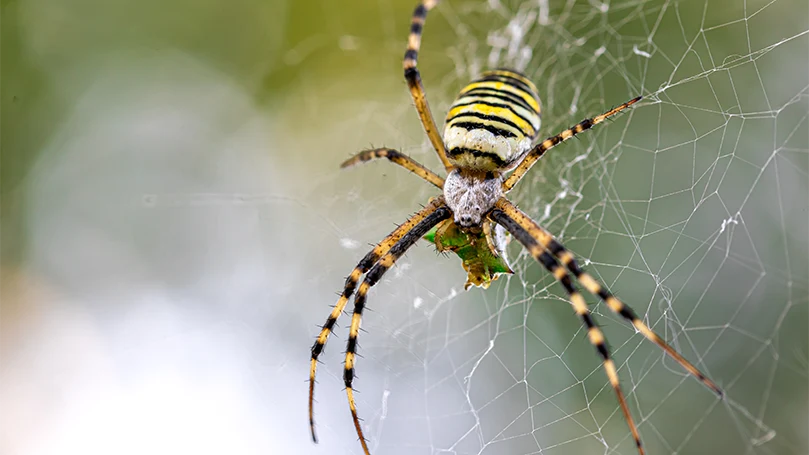
The other option is that the spider would somehow wander and end up in your mouth. Now, is that even possible? Well, according to science, that’s highly unlikely. First of all, unless you have some breathing issues, you’re going to sleep with your mouth shut and even if you manage to open them for a while – it is highly unlikely that a spider would crawl in.
Do spiders find us interesting so they go into our mouths?
Now, spiders have been known to enter various cavities, for instance, ear canals. There was a report a few years ago that a spider had entered a woman’s ear and had caused some hearing issues, as well as some major itchiness.
With that in mind, one could argue that spiders find us interesting. However, to be fair, it is not that often that a spider would crawl into your ear, mouth or nose, because, they don’t find humans particularly interesting. Everything we do during the night, including breathing, creates vibrations that scare the spiders away.
How likely is it to swallow a spider while sleeping?
If we had to put it simply, we'd say – swallowed spiders are not that likely to happen. You're far more likely to be bitten by jumping spiders during the night than you are to swallow one. According to biology, it is almost impossible that this would ever happen. Spiders don't tend to end up in our mouths and we don't swallow nearly as often when we sleep.
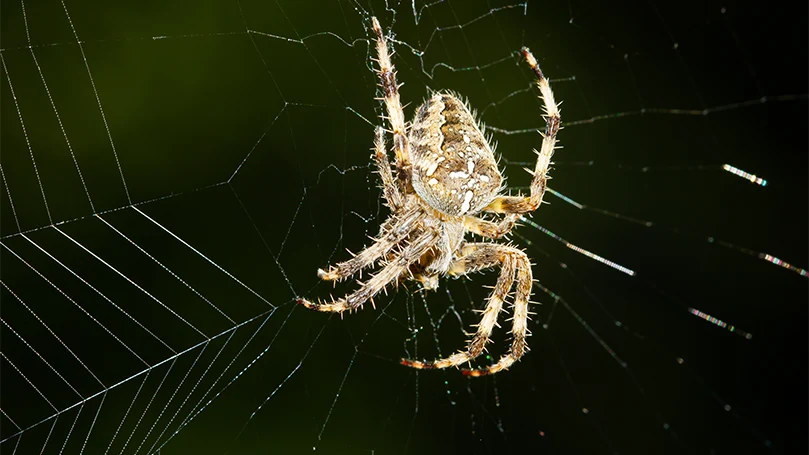
If you’ve ever found yourself woken up by a wet pillow because you were drooling, that’s because we don’t even swallow the saliva that often. Let alone crawling, 8-legged insects. Therefore, the chances of actually swallowing a spider are pretty, pretty slim – or the spider leg if you will.
What can we do to keep the spiders away while we are sleeping?
Now, just because your chances of swallowing a spider during the night are extremely low does not mean that the chances of finding a spider crawling in your room are 0%. Spiders are all around us. In fact, there’s probably one or two somewhere near you – you just don’t see them.
However, don’t be alarmed. Unless you live in Australia, which you luckily don’t, most of the spiders you’d find in a home are pretty much harmless to humans, but if you still don’t want them anywhere near you – here’s what you can do.
Use spider repellents
One of the most efficient ways to get rid of spiders, or any other insect for that matter, is to get an ultrasonic repellent. In this case, you’d get a spider repellent. Spider repellent is a small, portable, plug-in device that emits ultrasonic sounds that scare off spiders.
These high-frequency noises are said to be quite effective in deterring spiders and other insects, because, as we’ve already said, they don’t really appreciate the vibrations. Now, just how effective these are is yet to be proven, but according to what we know of spiders, they should do the work.
Use essential oils
Essential oils will improve your sleep quality, that's for sure. But, they can benefit you in so many ways and we’re sure you’re familiar with most of them, however, what you may not know is that the smell of essential oils can repel spiders.
According to various sources, peppermint essential oil is said to be the most effective in scaring away these 8-legged creatures. So, all you have to do to keep the spiders away from your bedroom is to mix several drops of peppermint essential oil with water and spray your room with it.
If you have hardwood floors, you can even try leaving soaked peppermint tea bags in corners of your room as that should do the trick, as well.
Clean your house often
It’s not that the spiders enjoy filth, but some other insects do. If you don’t clean as often as you should, you’re risking a major insect infestation in your home, which would then make spiders the least of your worries. To be fair, there would be web all over the place, but they’d also feast on other insects, so, there’s that.
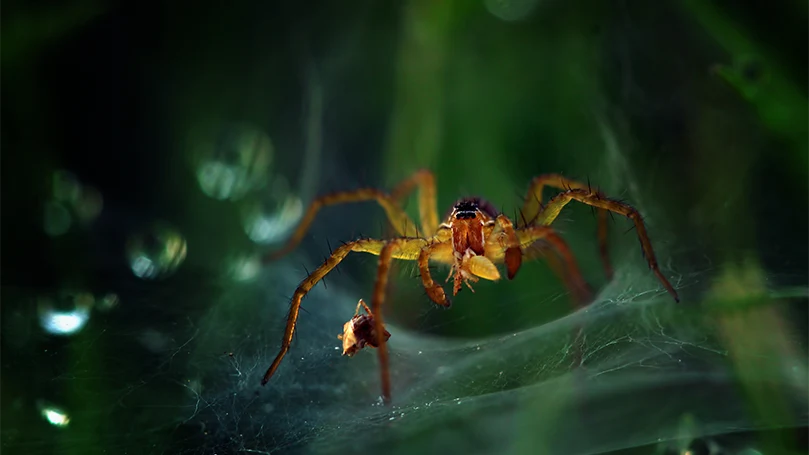
However, what spiders do enjoy is peace and quiet, so, unless you clean often, you’re pretty much guaranteed to have a spider spin a web in every warm, dark corner of your bedroom and quite possibly lay some eggs, which would then result in a nightmare scene for a lot of people.
Do not eat in the bed
Just like it was the case a moment ago – don’t keep your place dirty. If you eat in bed, you’re pretty much guaranteed to leave crumbs all over the bed, floor or any other part of the room. Food crumbs attract insects, insects attract spiders and allegedly spiders enter your mouth while you sleep, so you can see where you’ve made the mistake.
Eat in the kitchen or dining room and leave the bedroom for sleeping and fun times. If you want to be romantic and have breakfast in bed from time to time – make sure you clean up good right after you’re done.
Call exterminators if having problems with spiders
To be honest, unless you’re living in the “land down under”, you’re probably not going to have to call the exterminators because there’s a spider infestation in your home. The UK climate is not the most pleasant for most spiders and there are no venomous (nor poisonous, so, feel free to swallow them if you wish) species natively living here, so even if you do notice a spider in your home – it’s highly unlikely that it can hurt you.
On the off-chance you do wind up with an infestation – you can call the exterminators. You probably won’t ever have to, but it’s nice to know that you could, right?
Do people swallow in their sleep?
Although swallowing does happen, it is more of an episodic action that takes time from time to time (during the sleep). It also happens that there are some time when people don't swallow for a few hours. Movement arousals, specific to REM stage of sleep, are often the main causes of the swallowing reflex. Therefore, theoretically, it is possible to swallow the spider – in case someone puts it directly in your mouth.
How many spiders does the average house have?
Each house/apartment has spiders – no doubt. However, this should not scare you (or it should?!) – an average number of spiders that you can find in 99% of the homes is 61.84, a general formula would be – 131 spiders per square meter. There might be one within your reach, right now!
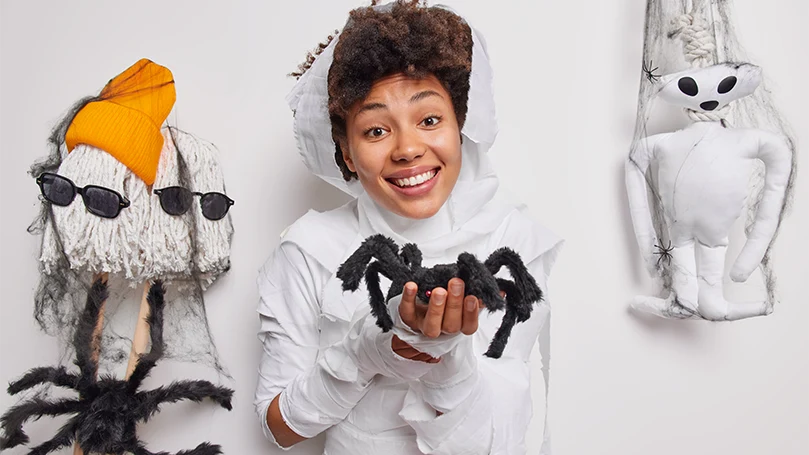
Do spiders like beds?
It is not uncommon for spiders to explore your bed and bedding. However, it is very unlikely that you will find one, especially when you are in the bed. The vibrations that we produce due to sleeping, moving or snoring, repel them and make your bed not an ideal place for them to stay. So, in general, spiders shouldn't stay too long in your bed.
Myth or truth – Do we eat spiders while we are sleeping?
It's time for the final verdict – do we really eat spiders while we're sleeping? No, absolutely not. This is nothing more but a myth. The chances of that ever happening are basically on par with winning the lottery, so, pretty much non-existent.
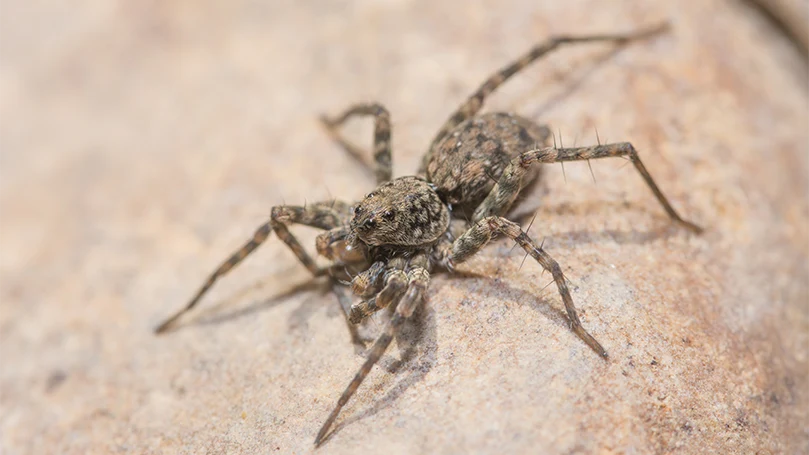
We rarely sleep with our mouths open, we rarely swallow when we sleep and the spiders are virtually repelled by our body’s vibrations, meaning, they won’t come anywhere near us during the night. So, sleep tight, don’t worry about spiders crawling in your mouth and most importantly – don’t let the bed bugs bite you!
Spread the word
Recommended reading:
- Hypoallergenic pillows for insect-free sleep
- Changing your mattress – when to do it?

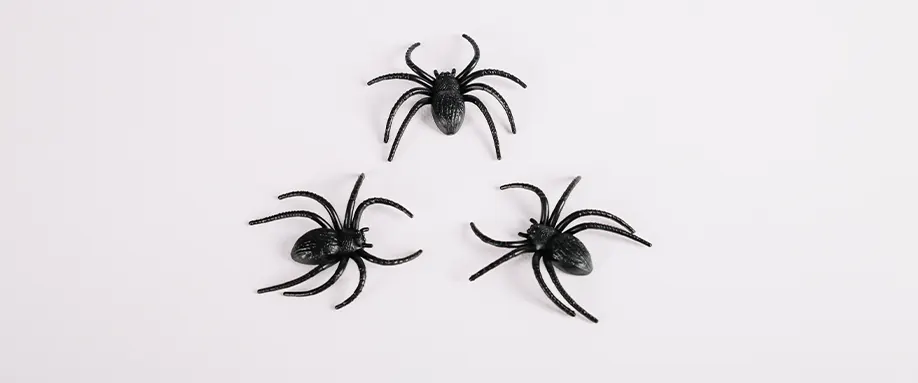













There are no comments yet
"*" indicates required fields